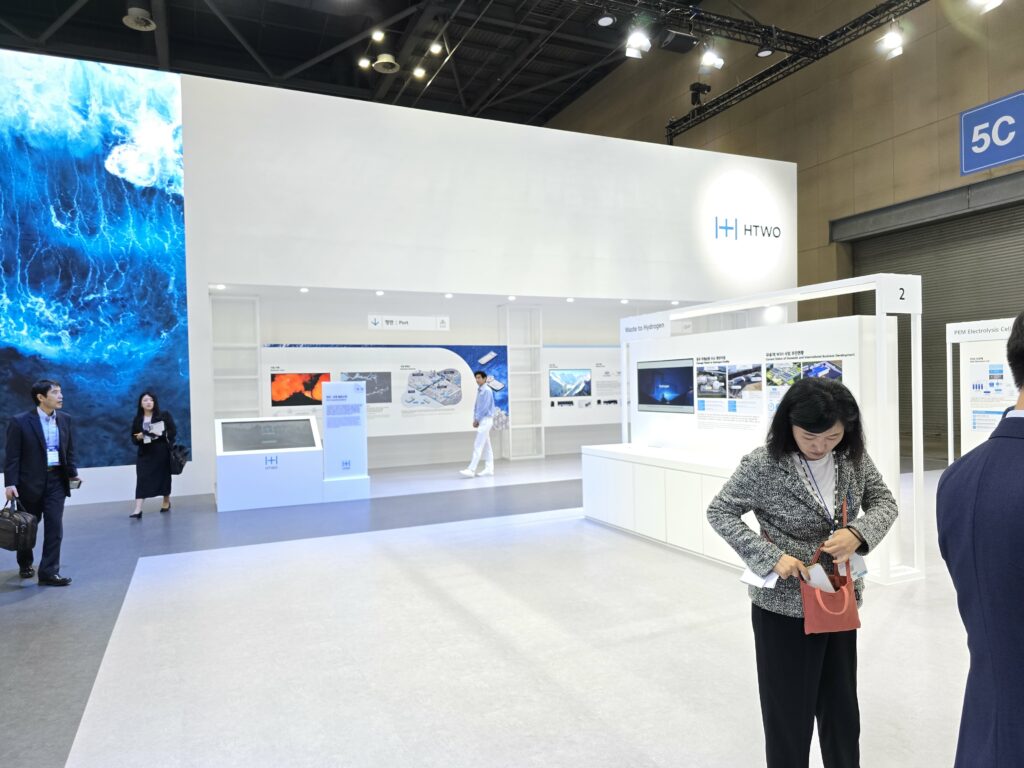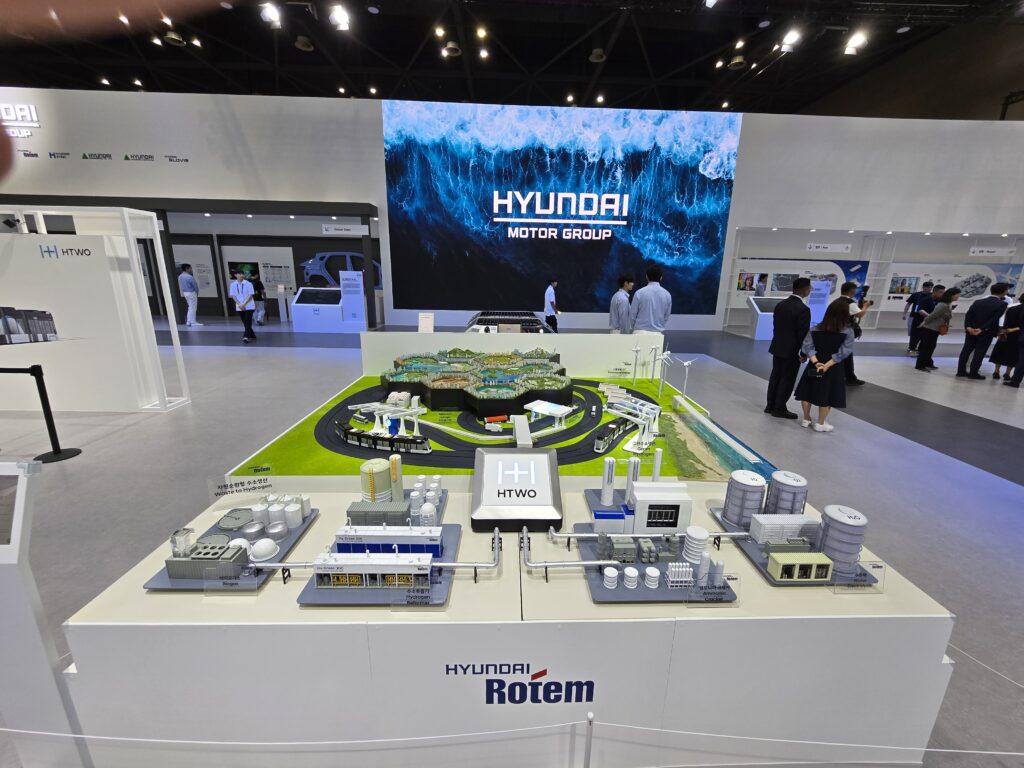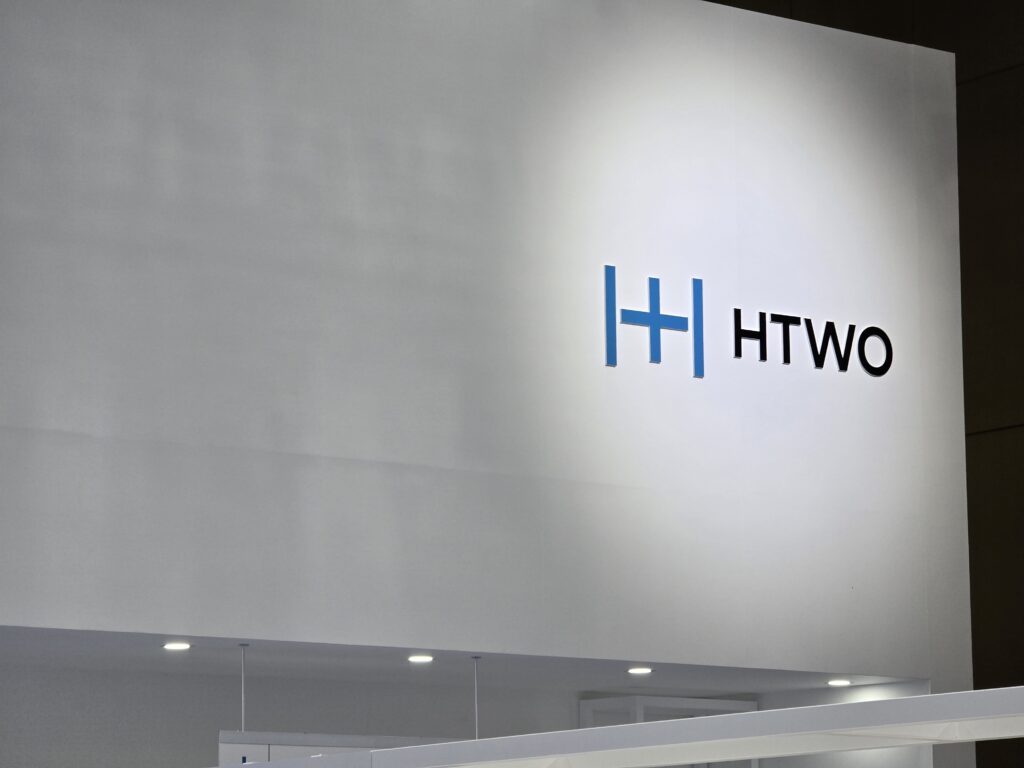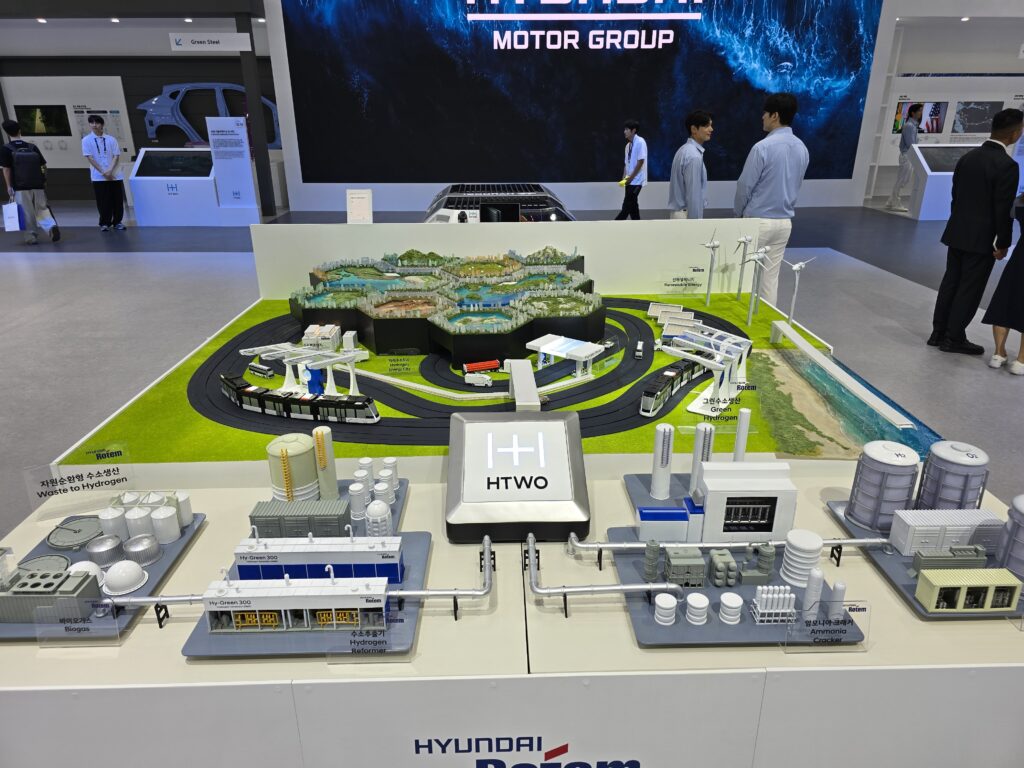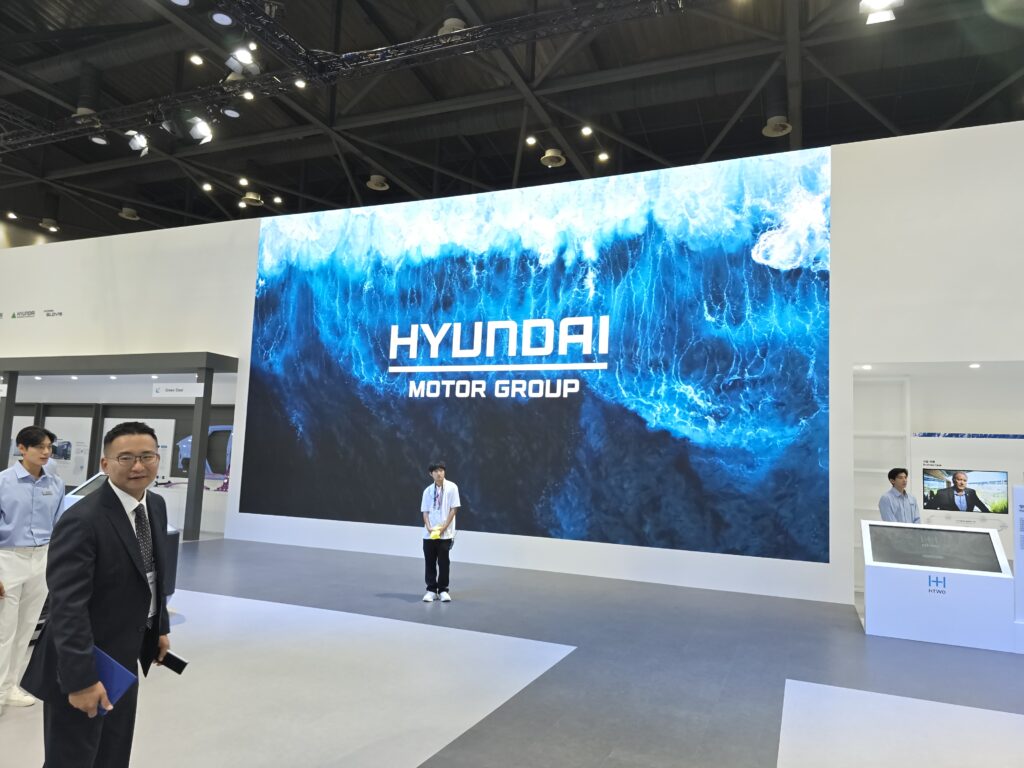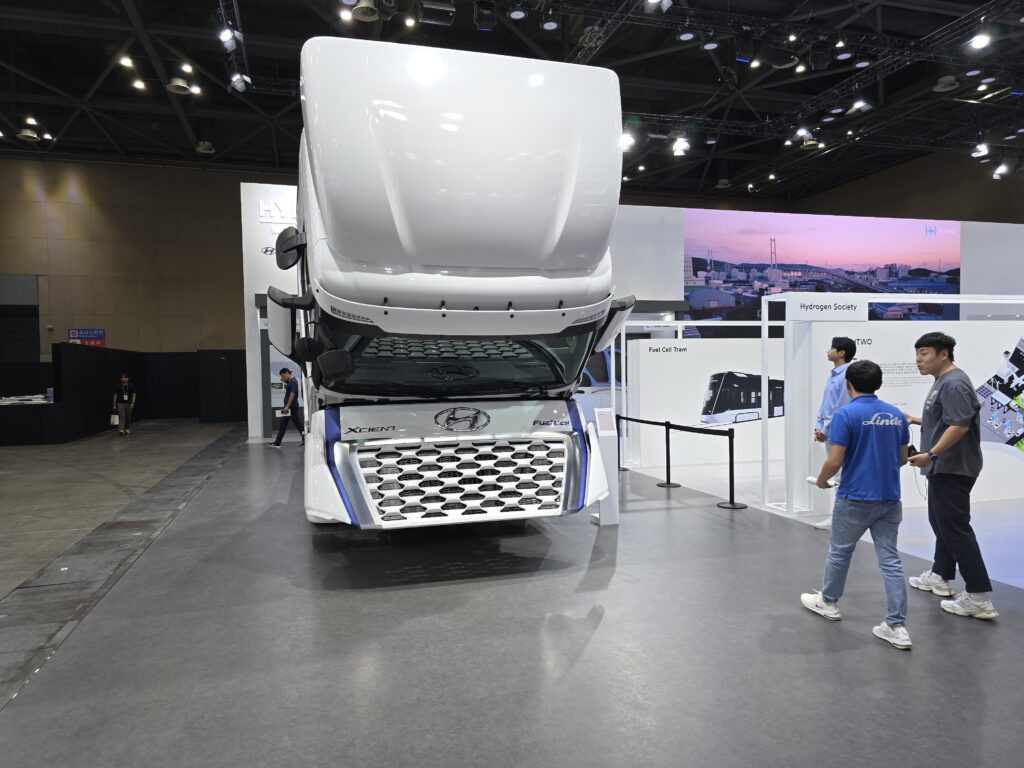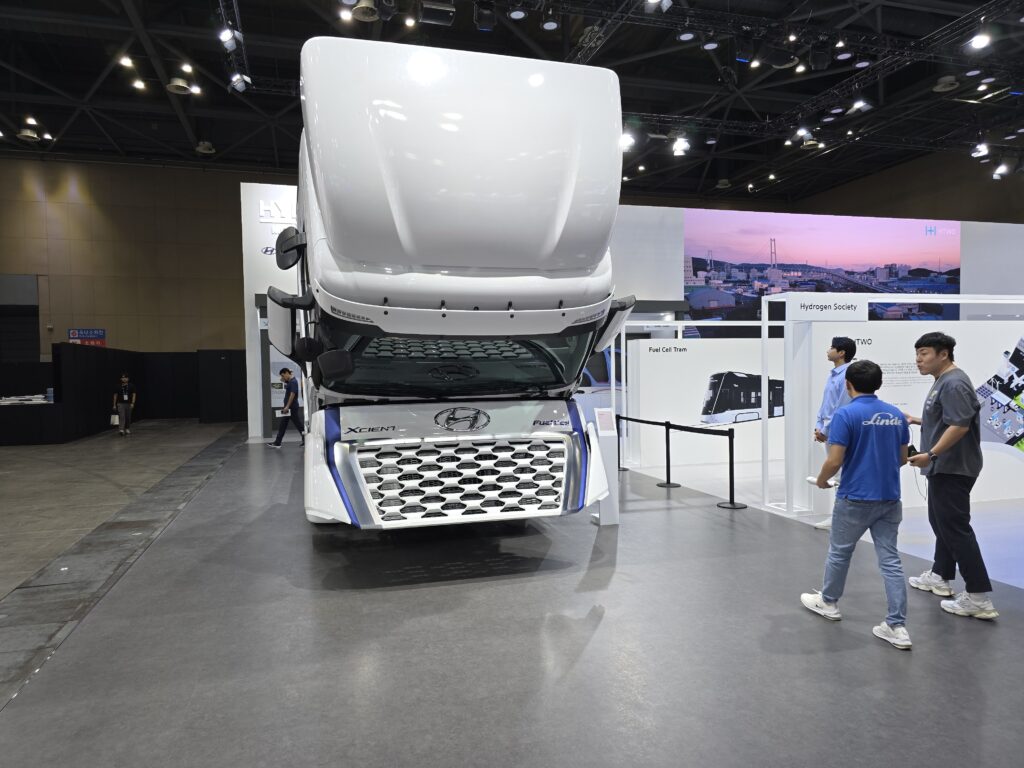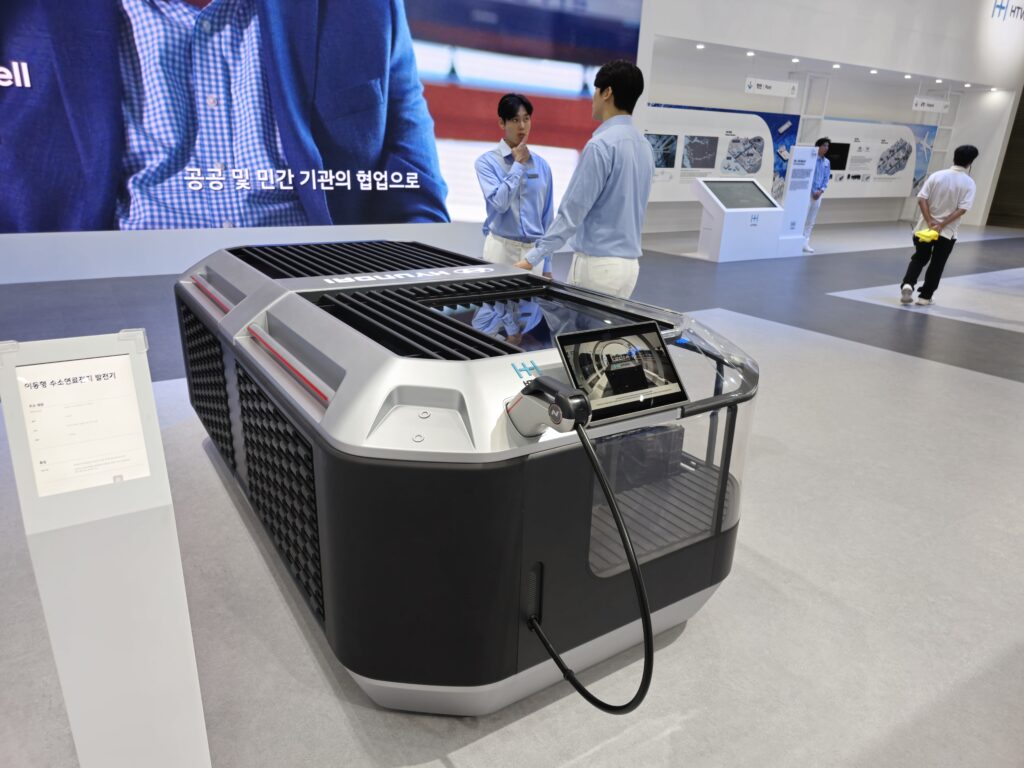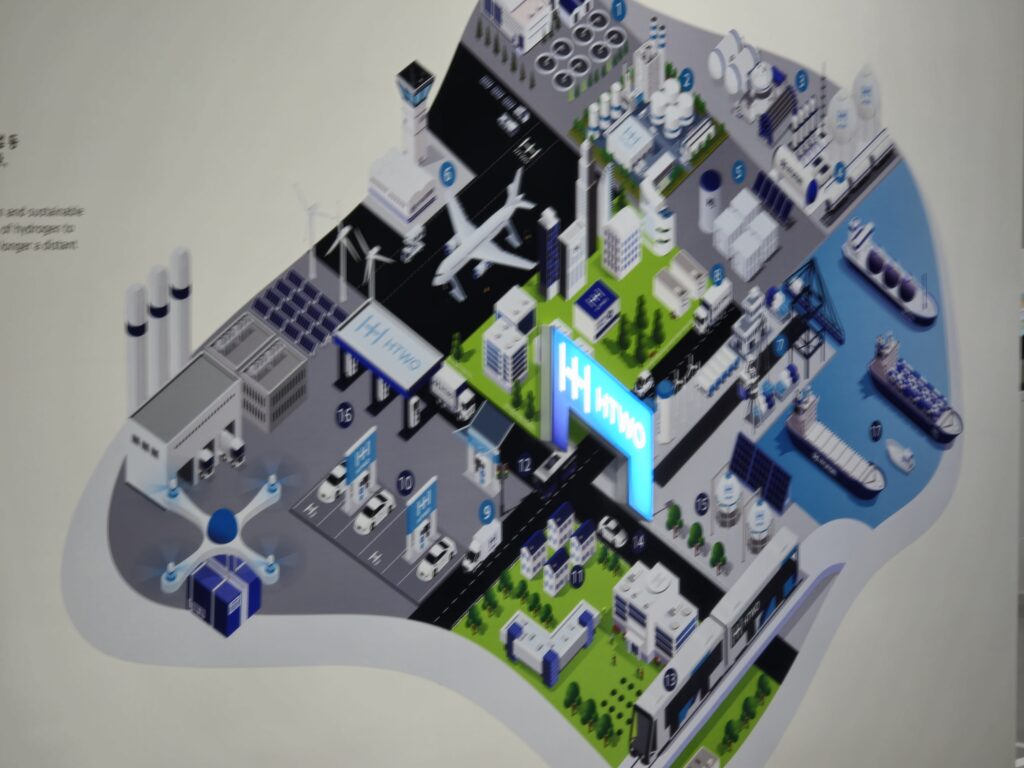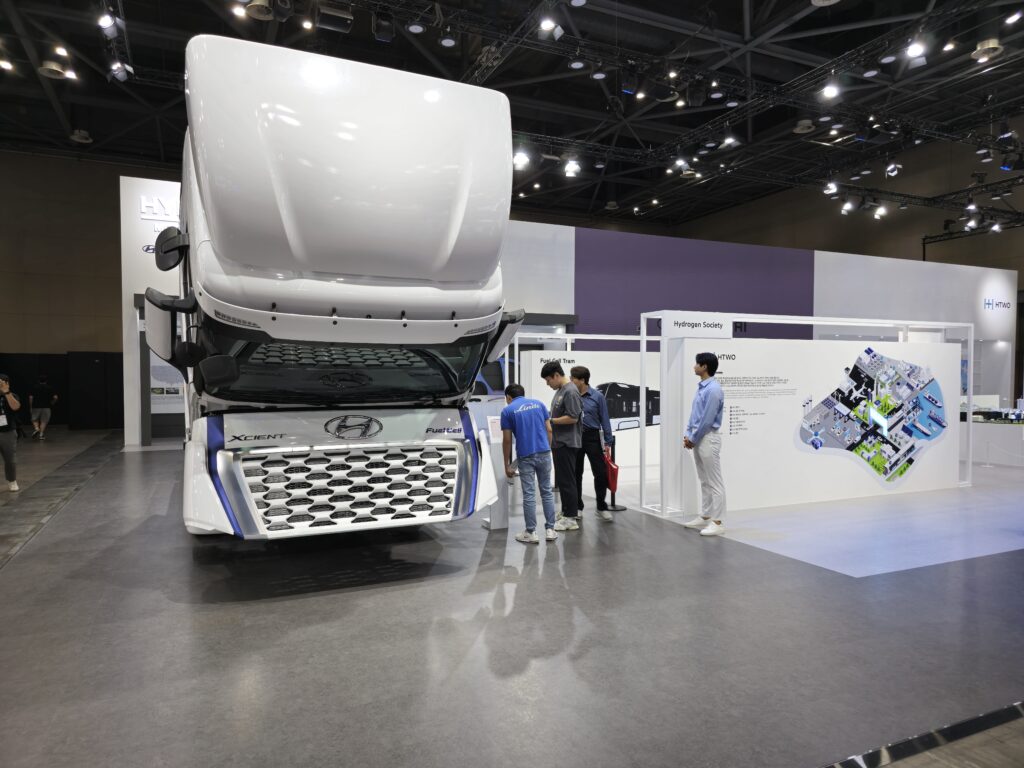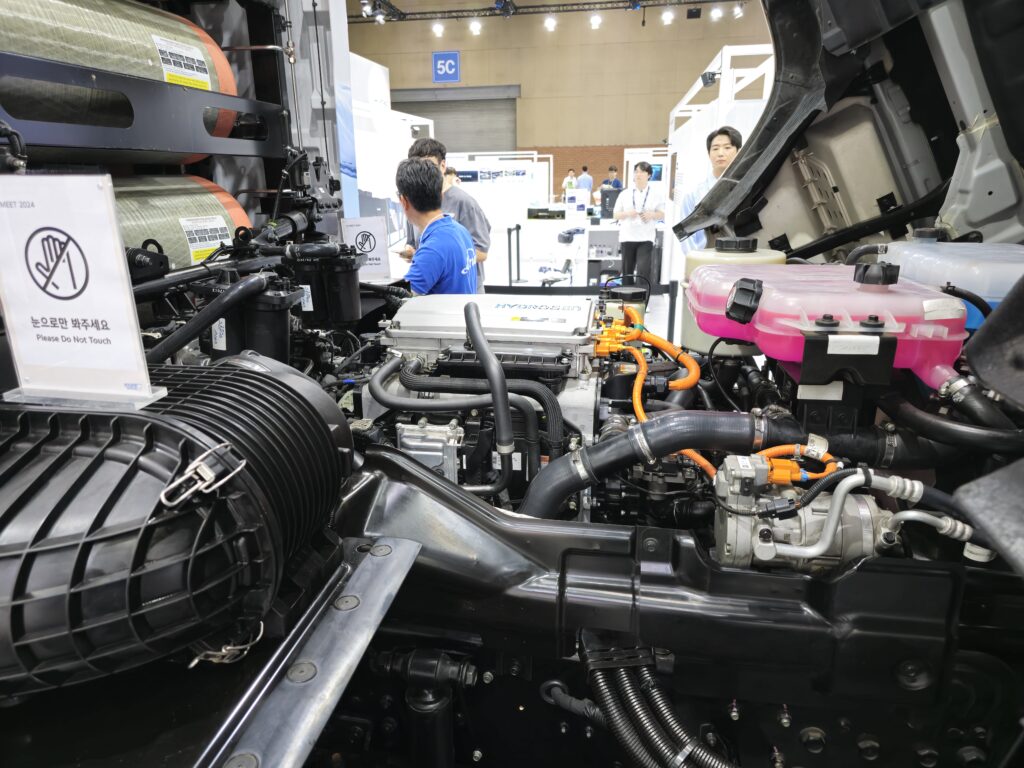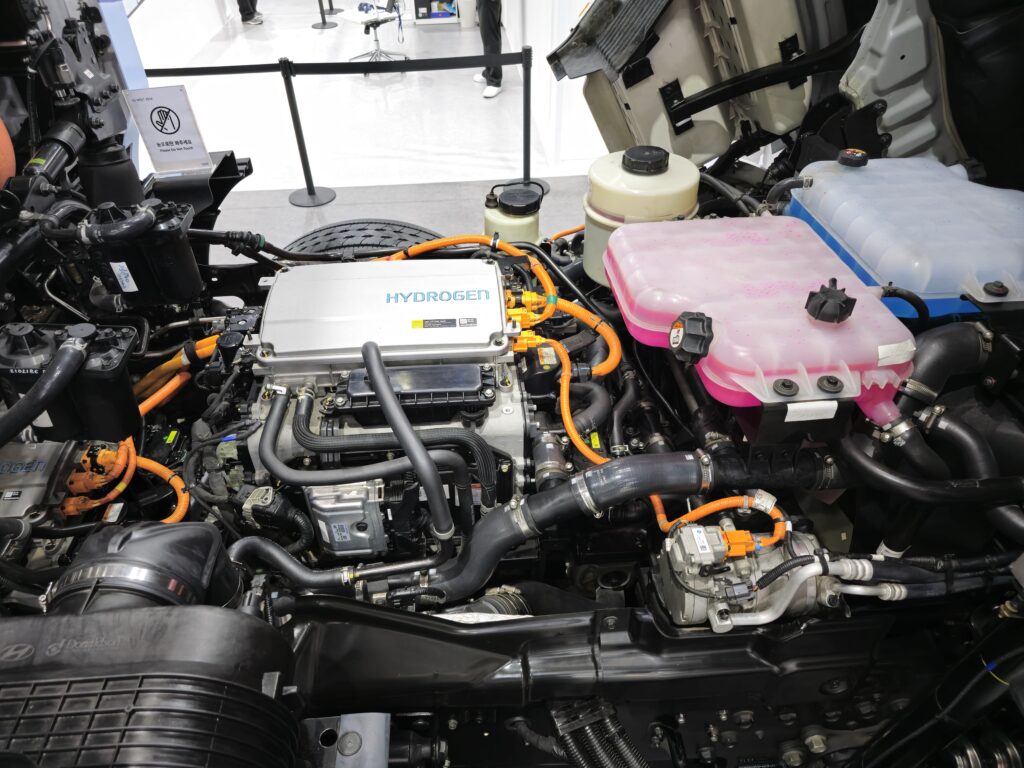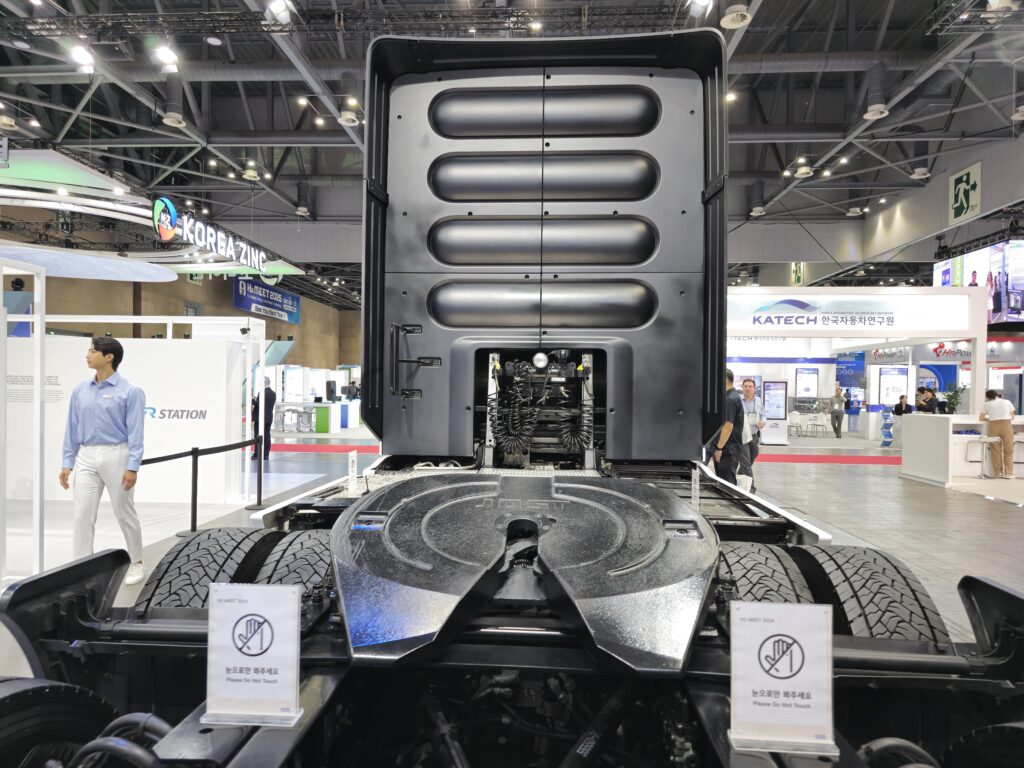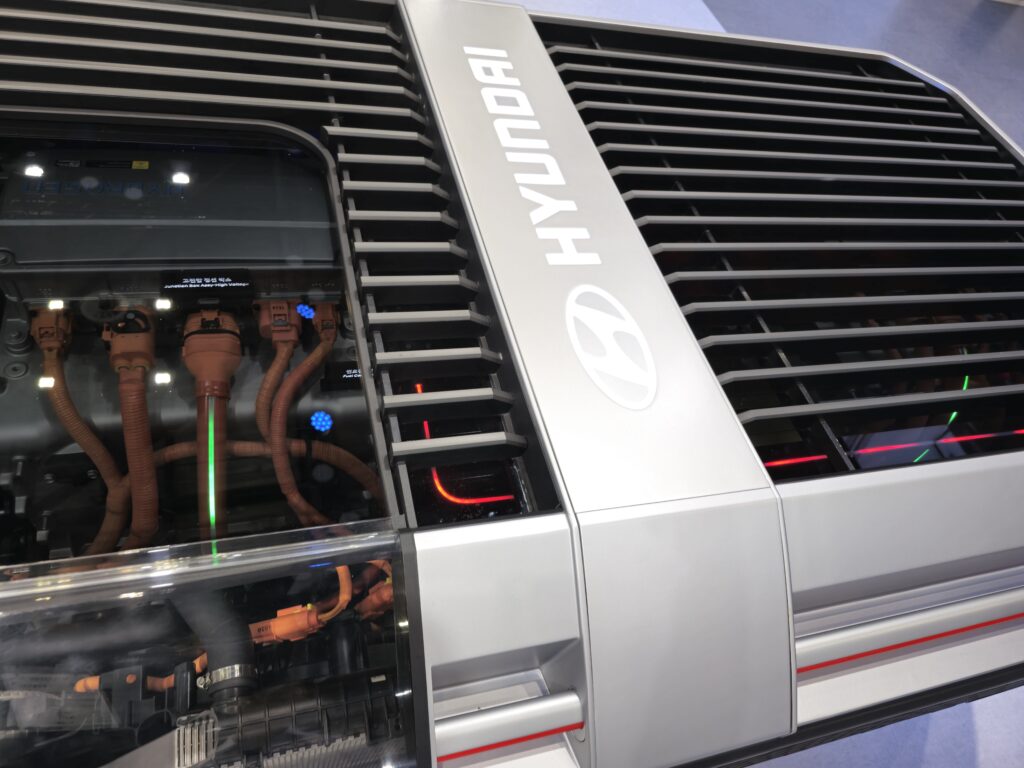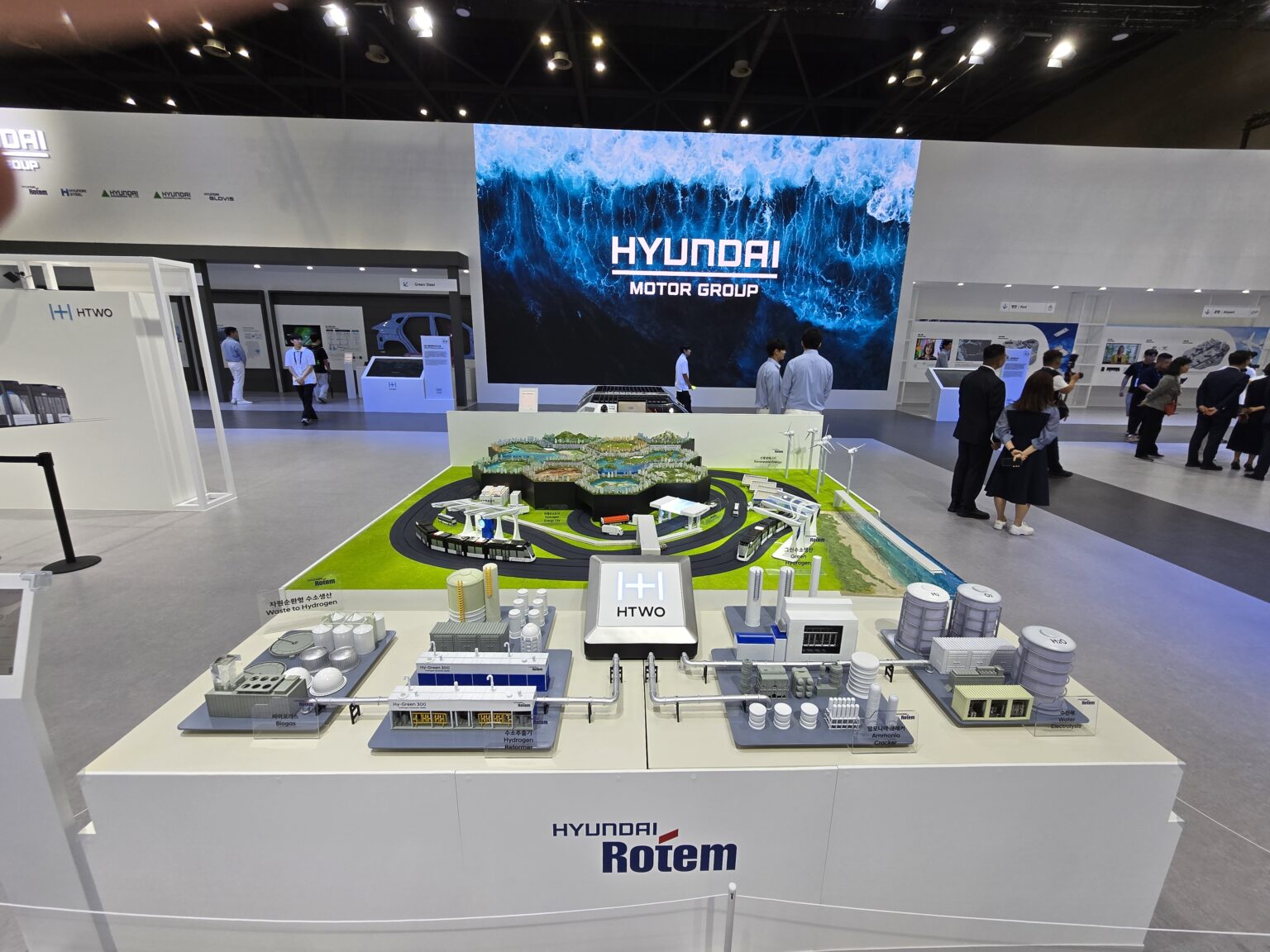Hyundai Motor Group recently showcased its ambitious hydrogen roadmap at H2 MEET 2024, Korea’s largest hydrogen industry exhibition, held from September 25 to 27 at KINTEX, Seoul.
The event saw Hyundai unveiling its complete hydrogen value chain and reinforcing its commitment to leading the global energy transition through its HTWO brand.
Hyundai’s exhibition, under the theme “Be a First Mover in Hydrogen,” demonstrated its efforts to cover the entire hydrogen value chain, from production to utilization. A key highlight was its innovative waste-to-hydrogen (W2H) and plastic-to-hydrogen (P2H) technologies. These processes convert organic waste and non-recyclable plastic into hydrogen, setting a standard for sustainable energy production.
One notable achievement is Korea’s first W2H facility in Chungju, which produces hydrogen from food waste, supplying nearby refueling stations. Hyundai’s reverse electrolysis technology, PEM electrolysis, further strengthens its hydrogen production capabilities, ensuring the creation of high-purity hydrogen. The company’s Buan-based facility also marks a milestone as Korea’s first PEM electrolysis production plant.
The second exhibition scenario focused on Hyundai’s efforts to decarbonize industrial complexes, particularly in ports and airports. Hyundai’s Class 8 XCIENT Fuel Cell trucks, part of the NorCAL ZERO project in California, were highlighted for reducing emissions at the Port of Oakland.
Hyundai also aims to extend its hydrogen infrastructure to Incheon International Airport. This includes building additional hydrogen refueling stations and introducing hydrogen-powered trucks for logistics, helping create a greener airport ecosystem.
In the third scenario, Hyundai showcased its strategy for transforming industrial logistics through hydrogen. Hyundai’s joint venture with Hyundai Glovis, HTWO Logistics, aims to transition from traditional diesel trucks to hydrogen-fueled trucks for logistics operations. The venture, starting in the U.S. with the Hyundai Motor Group Metaplant America (HMGMA) in Georgia, plans to expand globally, significantly reducing emissions across supply chains.
The exhibition also covered the steel industry’s role in this transition, emphasizing the shift towards hydrogen-based energy systems.
